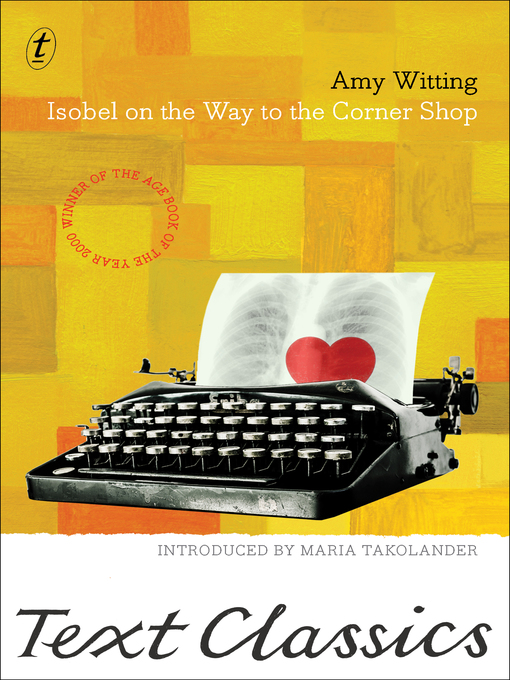Isobel Callaghan is struggling to make a career as a writer in Sydney. She is isolated, poor and hungry, and fears she's going mad. Leaving her room in a boarding house in search of food, she has a breakdown on the way to the corner shop.
Waking in hospital, Isobel learns that she will be confined to a sanatorium in the Blue Mountains. There, among the motley assortment of patients, and with the aid of great works of literature, she will confront the horrors of her past. But can she find a way to face the future?
Confronting and compassionate, profound and funny, the second Isobel Callaghan novel is every bit as brilliant as its much-loved predecessor. It confirmed Amy Witting as one of the finest Australian writers of her time.
Amy Witting was born in Sydney in 1918. She attended Sydney University, then taught French and English in state schools. Beginning late in life she published six novels, including The Visit, I for Isobel, Isobel on the Way to the Corner Shop and Maria's War; two collections of short stories; two books of verse, Travel Diary and Beauty is the Straw; and her Collected Poems. She had numerous poems and short stories published in magazines such as Quadrant and the New Yorker. Her acclaimed short fiction is collected in the volume Faces and Voices. Witting was awarded the 1993 Patrick White Prize. Isobel on the way to the Corner Shop won the Age Book of the Year Award. Amy Witting died in 2001.
'Her reflections on human nature are eloquently drawn, intimate, compassionate and witty.' Australian
Amy Witting is comparable to Jean Rhys, but she has more starch, or vinegar. The effect is bracing.' New Yorker
'[Witting] lays bare with surgical precision the dynamics of families, sibling, students in coffee shops, office coteries. One sometimes feels positively winded with unsettling insights. There is something relentless, almost unnerving in her anatomising of foibles, fears obsessions, private shame, the nature of loneliness, the nature of panic.' Janette Turner Hospital
'A beautifully but unobtrusively honed style, a marvellous ear for dialogue, a generous understanding of the complex waywardness of men and women.' Andrew Riemer
'Sparkling prose and extraordinary ability to enter the minds of a wide variety of characters.' A Reader's Guide to Australian Fiction
'Quietly brilliant...Witting's characterizations are staggeringly sharp—it is hard to imagine a novel more keenly observed—simultaneously heartbreaking and (subtly) hilarious, not because they're exaggerated, but because they are so unsettlingly, overwhelmingly true...A compassionate masterpiece.' STARRED Review, Kirkus

